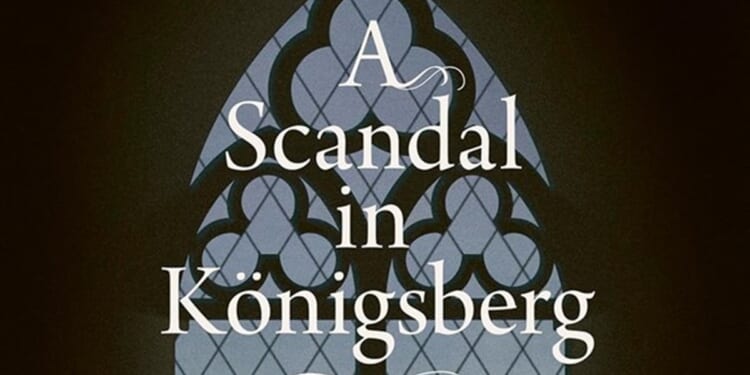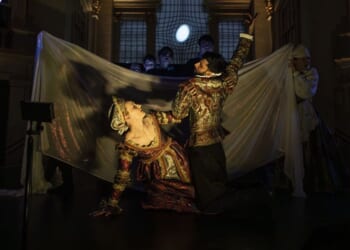WHAT comes to mind when you think about Königsberg, now the Russian exclave of Kaliningrad, but once an outpost in East Prussia, far from Berlin, but by no means provincial or without aspirations? The Königsberg Bridge Puzzle perhaps, or its most famous citizen, Immanuel Kant, by whose movements around the city, legend has it, clocks could be set. But a scandal, one that involves both sex and religion?
With the precise observation of a historian and the skill of a literary writer, Christopher Clark reveals a world of rising rationalism and growing state control of the Church, but also of many other currents of 19th-century Europe. The subject of the complaint about which a letter is written to the King of Prussia and which would occupy consistory courts is two clergymen: Ebel and Diestel.
A bizarre sect was supposed to have arisen under their leadership; and their preaching seemed to attract mainly women — though the complaint is made by a male alleged former member. There was talk of sexual impropriety and even pregnancy out of wedlock. None of this was substantiated by evidence, but the rumours triggered the dismissal of the two clergymen, and much besides.
The mid-19th century in Europe was, indeed, a time when ideas like the ones proclaimed by Ebel and based on the ideas of Johann Heinrich Schönherr, an itinerant eccentric with theosophical leanings, and, indeed, an inward-looking emotional piety, in contrast to rationalistic state-controlled Protestantism, might fall on fertile ground. But the rumours about the goings-on under the covers of this sleepy outpost, the “city of almost”, as Clark calls it, tapped into the fears of many.
As a historian, Clark skilfully interweaves his findings in the Secret State Archive with painting a picture of the political, theological, and social landscape of the time. What emerges is far more than a microhistory of a Baltic city that few have ever visited or the story of two deposed clergymen and their followers. Like much good historical observation, it becomes a parable about some of the currents of our own time, not least the potential origins and the power of what we might now call fake news.
Dr Natalie K. Watson, a theologian and writer based in Peterborough, is an honorary lay canon of Peterborough Cathedral.
A Scandal in Königsberg, 1835–1842
Christopher Clark
Penguin Allen Lane £22
(978-0-24176-788-7)
Church Times Bookshop £19.80

















